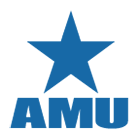A community devoted to new service members and their families

How Does the Yellow Ribbon Program Help Veterans?
By Wes O’Donnell
Veteran, U.S. Army and Air Force. Managing Editor, In Military, In Space News and InCyberDefense.
By the time I complete my terminal degree in 2023, I will have had nine years of higher education having spent almost no money out of pocket. And while each veteran’s circumstances are different, the Yellow Ribbon Program seems to be one of the best-kept secrets in the Post 9/11 GI Bill.
While seeking out institutions that are not only prestigious but veteran friendly, I discovered that some are Yellow Ribbon and some are not. This played a big role in my choice of school; it should be for you as well.
So, what is the Yellow Ribbon Program and why aren’t more people talking about this amazing benefit?
The Yellow Ribbon Program Explained
The Yellow Ribbon GI Education Enhancement Program (aka the Yellow Ribbon Program) is a provision of the Post-9/11 Veterans Educational Assistance Act of 2008, also known as the Post-9/11 GI Bill or Chapter 33. The Yellow Ribbon Program allows institutions of higher learning to enter into a voluntary agreement with the Department of Veterans Affairs (VA) to contribute funds to veterans’ unmet tuition and fee charges (e.g. Student Government, lab class fees, etc.) when those charges exceed the amount payable under Chapter 33.
Essentially, it allows veterans to attend private colleges that previously might have been too expensive and out of reach at little or no cost to themselves.
For their part, the schools have agreed to waive a portion or all of their tuition costs that exceed the national maximum Post-9/11 GI Bill reimbursement, which is currently $24,476.79 per year. What’s more, the VA will match the amount of the waiver and also contribute that to your tuition.
How Do I Find a List of Participating Universities?
The VA has a very helpful interactive map by state showing a list of universities that participate in the Yellow Ribbon Program.
How Do I Know if I am Eligible?
To receive benefits under the Yellow Ribbon Program you must be eligible for the maximum benefit rate under the Post-9/11 GI Bill.
This includes:
- Those who served 36 months (may be aggregate) on active duty
- Purple Heart recipients with an honorable discharge and any amount of service
- Those discharged after 60 days with a service-connected disability and who served 30 continuous days after September 10, 2001
- Children using transferred benefits
- Children using transferred benefits if their sponsor servicemember transferred them or is at the 100 percent disabled (36 months served)
- Effective August 1, 2022, servicemembers at the 100 percent level and transferee spouses whose transfer is at the 100 percent level
Also:
- Your school must agree to participate in the Yellow Ribbon Program
- Your school must not have offered Yellow Ribbon status to more than the maximum number of individuals, as stated in their participation agreement
- Your school must certify your enrollment to VA and provide Yellow Ribbon Program information
You are not eligible if:
- You are an active duty servicemembers or their spouse.
Seek Schools That Are Veteran Friendly
I have always been a strong advocate for veterans’ education and entrepreneurship. After all, veterans are uniquely suited for success in a post-military career thanks to traits learned while on active duty.
I earned my MBA at American Military University (a Yellow Ribbon school) while working full-time at multinational German conglomerate Siemens. AMU’s culture and dedication to servicemembers was a perfect fit for me. Wherever you seek higher education, be on the lookout for the Yellow Ribbon designation.
It stands to reason that a college that has a Yellow Ribbon Program cares about your success as a veteran. After all, such a school is voluntarily giving up a portion of its tuition because you served your country.
Remember, the Post 9/11 GI Bill is a benefit that you earned through sacrifice. Make sure that you are getting the most out of your educational entitlements.
About the AuthorA veteran of both the U.S. Army and U.S. Air Force, Professor Wes O’Donnell is a highly sought-after presenter and filmmaker who has spoken at TEDx on data visualization and the U.S. Air Force Academy on leadership. Wes earned both his B.A. in international relations and his M.B.A. with a focus on IT management at American Military University, and he has served as a university ambassador since 2013.

